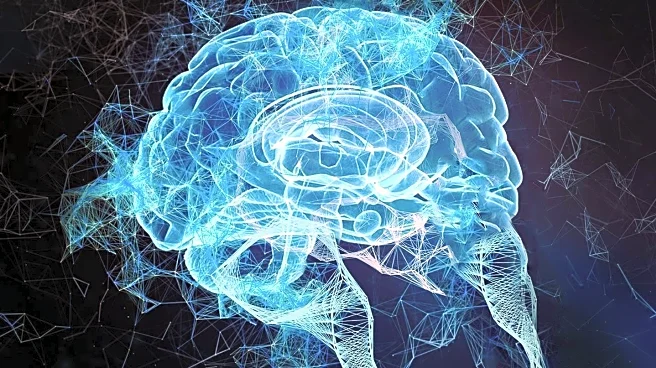What's Happening?
Researchers at the Shibaura Institute of Technology in Japan have developed new vitamin K analogues that show promise in treating neurodegenerative diseases such as Alzheimer's, Parkinson's, and Huntington's
disease. These analogues have demonstrated a threefold increase in potency for inducing neuronal differentiation compared to natural vitamin K. The study, published in ACS Chemical Neuroscience, highlights the potential of these analogues to replenish lost neurons and restore brain function. The research team, led by Associate Professor Yoshihisa Hirota and Professor Yoshitomo Suhara, has identified a mechanism through which vitamin K promotes neuronal differentiation, potentially offering a groundbreaking approach to treating these debilitating conditions.
Why It's Important?
Neurodegenerative diseases significantly impact quality of life and place a heavy burden on healthcare systems due to the need for long-term care. Current treatments only alleviate symptoms without addressing the underlying disease. The development of a vitamin K-derived drug that can slow the progression or improve symptoms of Alzheimer's disease could enhance patient and family quality of life and reduce healthcare costs. This research could pave the way for novel therapeutic agents that delay or reverse neurodegenerative diseases, offering hope for millions affected by these conditions.
What's Next?
The next steps involve further testing and development of these vitamin K analogues to assess their efficacy and safety in clinical settings. Researchers will likely focus on optimizing the analogues for better therapeutic outcomes and exploring their potential in other neurodegenerative diseases. If successful, these analogues could lead to new treatments that improve patient outcomes and reduce the societal burden of neurodegenerative diseases.
Beyond the Headlines
The study also sheds light on the role of metabotropic glutamate receptors (mGluRs) in neuroprotection, suggesting that targeting these receptors could be a viable strategy for developing new treatments. The research highlights the importance of understanding the molecular mechanisms underlying neurodegeneration, which could lead to more effective therapies.












